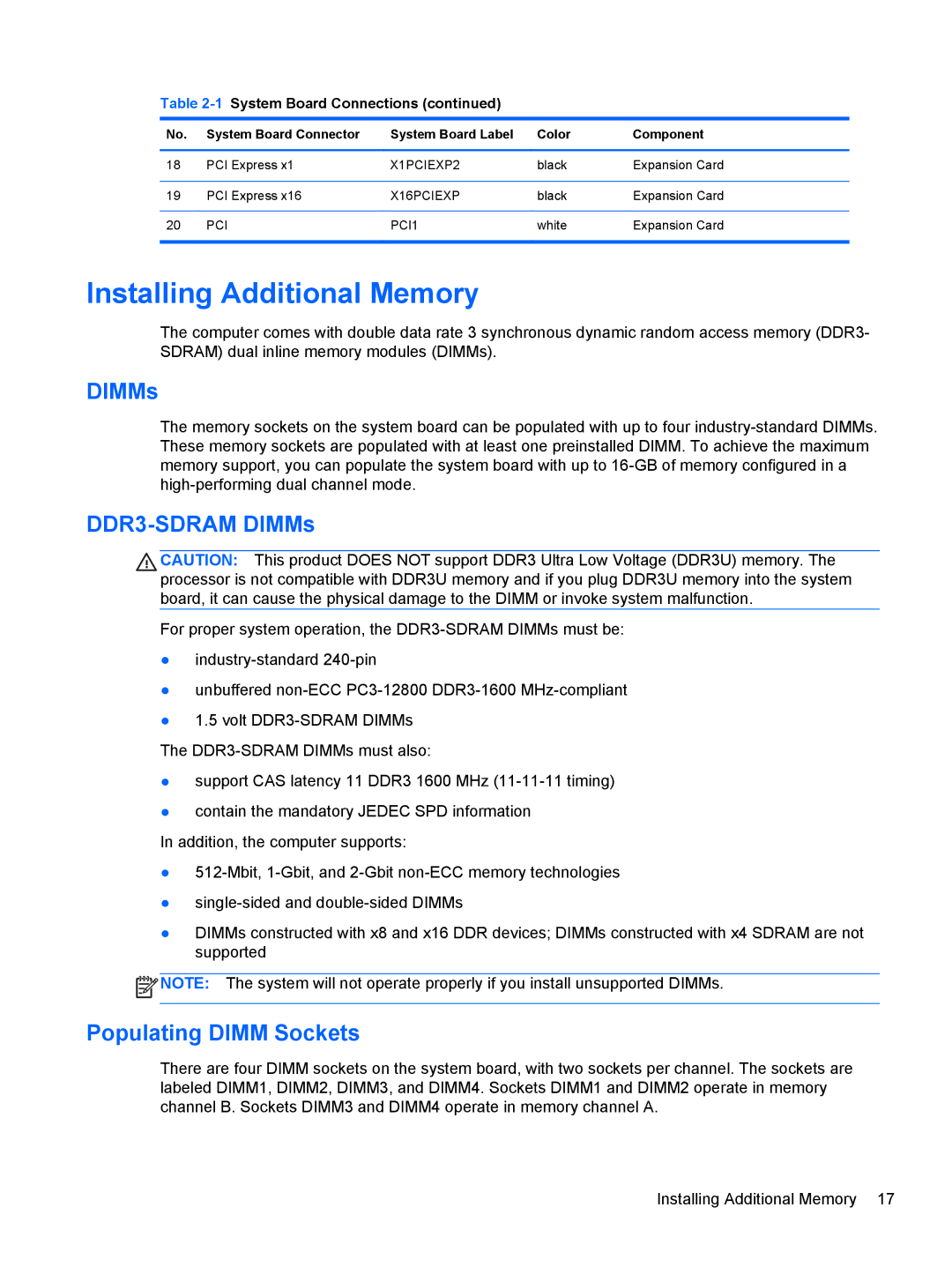
Table 2-1 System Board Connections (continued)
No. | System Board Connector | System Board Label | Color | Component |
|
|
|
|
|
18 | PCI Express x1 | X1PCIEXP2 | black | Expansion Card |
|
|
|
|
|
19 | PCI Express x16 | X16PCIEXP | black | Expansion Card |
|
|
|
|
|
20 | PCI | PCI1 | white | Expansion Card |
|
|
|
|
|
Installing Additional Memory
The computer comes with double data rate 3 synchronous dynamic random access memory (DDR3- SDRAM) dual inline memory modules (DIMMs).
DIMMs
The memory sockets on the system board can be populated with up to four
DDR3-SDRAM DIMMs
![]() CAUTION: This product DOES NOT support DDR3 Ultra Low Voltage (DDR3U) memory. The processor is not compatible with DDR3U memory and if you plug DDR3U memory into the system board, it can cause the physical damage to the DIMM or invoke system malfunction.
CAUTION: This product DOES NOT support DDR3 Ultra Low Voltage (DDR3U) memory. The processor is not compatible with DDR3U memory and if you plug DDR3U memory into the system board, it can cause the physical damage to the DIMM or invoke system malfunction.
For proper system operation, the
●
●unbuffered
●1.5 volt
The
●support CAS latency 11 DDR3 1600 MHz
●contain the mandatory JEDEC SPD information
In addition, the computer supports:
●
●
●DIMMs constructed with x8 and x16 DDR devices; DIMMs constructed with x4 SDRAM are not supported
![]() NOTE: The system will not operate properly if you install unsupported DIMMs.
NOTE: The system will not operate properly if you install unsupported DIMMs.
Populating DIMM Sockets
There are four DIMM sockets on the system board, with two sockets per channel. The sockets are labeled DIMM1, DIMM2, DIMM3, and DIMM4. Sockets DIMM1 and DIMM2 operate in memory channel B. Sockets DIMM3 and DIMM4 operate in memory channel A.
Installing Additional Memory 17
